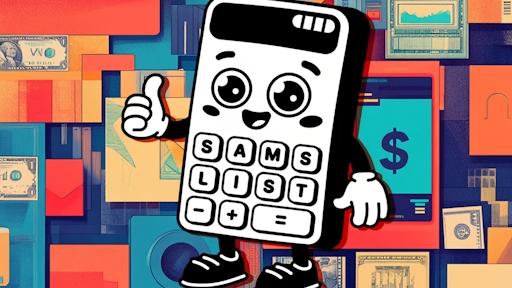There’s a point in every business where DIY bookkeeping goes from scrappy to sloppy.
Maybe it’s the third month in a row you’ve put off categorizing expenses. Or you’re not totally sure your income numbers are real. Or you find yourself preparing for tax season by saying,“Please God, let me not owe five figures.”
This is the moment you’re asking:“Is it time to hire a bookkeeper?”
Here’s how to know—and what to do next.
5 Clear Signs It’s Time to Hire a Bookkeeper
“If you’re spending more than 30% of your time doing bookkeeping, it’s a sign you need help. Your business needs you doingbusiness owner things, not reconciling Stripe payouts.”
— Kimi, Co-founder ofSam’s List
You don’t have to wait until you’re in the red to bring someone in. These are your red flags:
You should hire a bookkeeper when:
You're making $250K+ in revenue
You're falling behind on tax prep or 1099s
You have contractors, payroll, or inventory
You want monthly financial reports (and don’t have time to do them)
You’re not totally sure how much money you’re making—or spending
For eCommerce, real estate, and startup founders especially, these systems get complex fast. Hiring a bookkeeper helps you catch cash leaks, prep for taxes, and actually understand your business.
How Much Does It Cost?
Bookkeepers can charge hourly, monthly, or offer fixed packages. Here’s a quick breakdown:
| Type | Cost Range |
| Freelance bookkeeper | $20-$50/hour |
| Monthly contractor (remote) | $300-$900/month |
| Boutique firm | $700-$5,000/month |
When to Hire a Bookkeeper
| Your Situation | DIY Bookkeeping | Hire a Bookkeeper |
| Just getting started, under $100K revenue | YES | Not Yet |
| $100K-$250K revenue, <30 transactions/month | Maybe | Helpful |
| $250K+ revenue or hiring contractors | Risky | Strongly recommend |
| Managing inventory (e.g. eCommerce, real estate) | Complicated | Hire |
| Behind on taxes or unclear on financials | Dangerous | Hire |
| Spending >30% of your time doing bookkeeping | Inefficient | Hire |
If you're not sure whether your books are accurate—or even up to date—that's your sign. Clean books = better decisions, smoother tax season, and faster growth.
DIY → Pro: How to Make the Switch
Here’s what to prep before you hand things off:
Access to your bank, credit card, and payment processor accounts
Chart of accounts (or let your bookkeeper create one)
Income sources and expense categories
Last year’s tax return
Any outstanding invoices or bills
Not sure where to start?Bookkeepers on Sam’s Listcan clean up your old books and get your systems in place fast.
FAQ
When should you hire a bookkeeper?
Once you’re earning $250K+, falling behind on reconciliation or taxes, or spending too much time on admin tasks.
Do I need a full-time bookkeeper?
Not always. Most small businesses can hire someone monthly or part-time.
What happens if you wait too long to hire help?
Disorganized books can lead to cash flow surprises, tax penalties, and lost time fixing preventable mistakes.
You Might Also Like:
1.How Much Does a Bookkeeper Cost?
2.Stop Doing Your Own Bookkeeping
3.DIY vs Outsourced Bookkeeping
Author: Kimi, Co-founder of Sam's List
Kimi writes about what she's learning while building Sam's List and shares honest takeaways from her conversations with accountants and financial advisors across the country. None of this is financial advice—just the stuff most people wish someone told them sooner.







